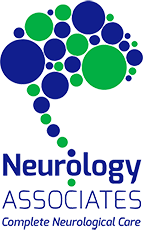Learn the Truth About Epilepsy
Epilepsy is a disorder in the central nervous system commonly recognized for the seizures caused by abnormal brain activity.
This author has not written his bio yet.
But we are proud to say that Neurology Associates contributed 41 entries already.
Epilepsy is a disorder in the central nervous system commonly recognized for the seizures caused by abnormal brain activity.
Parkinson’s disease is a progressive neurological disorder that primarily affects movement. It is characterized by tremors, stiffness, and difficulty with balance and coordination. The symptoms gradually worsen over time, and while there is no cure, treatments are available to manage the symptoms.
Frontotemporal Dementia (FTD) is a form of dementia and a condition that significantly affects individuals and their loved ones.
Understanding sleep apnea from a neurological viewpoint highlights the importance of recognizing and treating this sleep disorder. It is not only a matter of improving sleep quality but also of preserving cognitive function and neurological health.
Often misunderstood as merely a bad habit or a sign of nervousness, restless leg syndrome is a genuine medical condition that can impact the quality of life and sleep patterns of those affected.
Bell’s Palsy is a neurological disorder that results in sudden, temporary weakness or paralysis of the facial muscles, typically affecting one side of the face. This condition can cause significant distress and impact the quality of life for those affected. With an estimated 40,000 Americans diagnosed each year, it’s a condition that warrants attention and understanding.
Myasthenia gravis is a Latin term which means “grave muscular weakness.” Once you receive this diagnosis from an observant neurologist in Leesburg, a lot of things will suddenly become clear, such as why your jaw muscles get weak and tired while eating, then go back to normal after some rest.
Myopathy is a medical term that means your muscles are not working properly. Some of the common signs of myopathy are muscle weakness, pain, cramps, stiffness, and fatigue.
Neuropathy can cause various symptoms, such as pain, numbness, and weakness, especially in the hands and feet. There are four main types of neuropathy which are discussed in this article.
Having a hard time remembering phone numbers or names of people you just met? Everyone forgets things sometimes, however dementia is a severe form of memory loss that can be debilitating.


Member, American Society of Neuroimaging
The information contained on this website is for informational purposes only. It is neither intended nor implied to be a substitute for professional medical advice. Always seek the advice of your physician or other qualified healthcare provider before starting any new treatment, or with any questions you may have regarding a medical condition.
